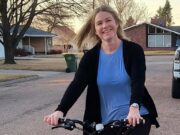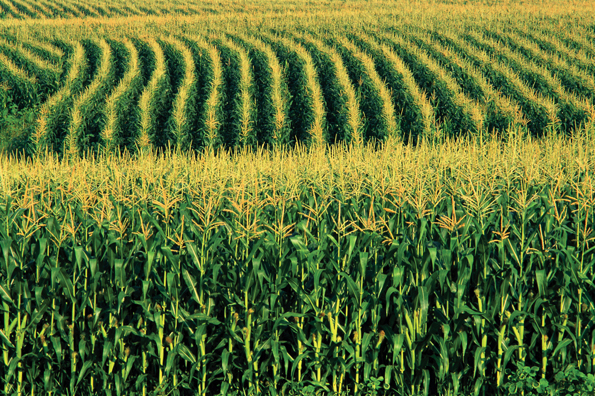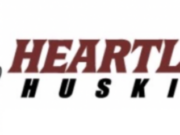Upcoming events:
April 13: Rescheduled: Lambing and Kidding School, 9 a.m. MT/10 a.m. CST, Firehall, Chadron or Custer County Fairgrounds Broken Bow, RSVP: 308-386-8378
April 15: Crop Science Investigation (CSI for Youth): Planting Experiment/Soil Temps, 5 p.m., Extension Office, RSVP: 402-362-5508
April 23: Wellness in Tough Times Free Webinar, Noon-1 p.m. CST, http://go.unl.edu/farmstresswebinar
April 27: 2019 Gardener’s Expo, 10 a.m.-Noon, Killgore Memorial Library, York
April 29: Rescheduled: Ag Banquet, 5:30 p.m. Social, 6:30 p.m. Prime Rib Dinner, Ag Pavilion Seward Co. Fairgrounds
April 29-30:Water for Food Conference, Nebraska Innovation Campus
Reflecting on conversations the past week, I think of the challenges those dealing with disaster and cleanup continue to face, the perhaps blessing in the fact more fall tillage didn’t occur for additional soil loss due to the rainfall and flooding, and the anxiety surrounding this planting season for many.
Waiting is hard for many of us in any aspect of life, yet has its benefits. As we think of this planting season, we can mess up the entire growing season with wrong decisions now through planting. Mudding in fertilizer and seed or tilling when too wet will have lasting effects. This also goes for planting in cold soil temps and/or planting shallow. Economically we also can’t afford these practices either. While I mentioned I’d share research on in-season fertilizer applications this week, I need more time to compile the results. So I’ll share on that and other planting considerations next week.
April 29 Application Deadline for Livestock Losses: On the livestock side, we know livestock losses had occurred due to the severe winter in January/February/March prior to and including the Blizzard/Flood event. Nebraska Extension worked with Farm Service Agency (FSA) to provide additional criteria for consideration of these losses qualifying for the Livestock Indemnity Program (LIP). There is now an extension granted for livestock producers to report livestock losses for LIP till April 29th for any losses that occurred the past three months due to adverse weather event or loss condition. An FSA press release last week shared, “Extended cold combined with above-normal precipitation during the months of January, February and early March created an adverse weather event that has had a significant impact on some livestock producers. We encourage them to reach out to our (FSA) office by the April 29 notice of loss deadline. LIP compensates livestock owners and contract growers for livestock death losses in excess of normal mortality due to an adverse weather event. The payment rate is based on 75 percent of the average fair market value of the livestock.” Documentation of loss can include beginning inventory and losses, pictures or video records documenting loss, records of the number and kind of livestock that died, vet records, or other production records.
The following is an excerpt from some information Extension provided: “As we think about February weather data, what created challenges in particular for cow-calf producers was the extended period of wet combined with cold. Most recently, additional challenges have included blizzard conditions and flooding. The draws and sheltered areas that protected calves from the cold and wind are sometimes the same places that were swept away during the most recent flooding events. Even for cattle out in pasture or grazing cornstalks, for many locations, there hasn’t been an opportunity for cattle to truly dry out, prolonging stress. Even for producers that bedded cattle, the bedding would get wet quickly because of saturated soil conditions. Cattle with a wet hair coat are much more susceptible to cold and windchill. A wet hair coat raises the lower critical temperature at which cattle experience cold stress (from a temperature of 19° Fahrenheit to 59° Fahrenheit). This higher critical temperature means that cattle have to use more energy to maintain their body temperature and creates a situation where often the cattle just can’t eat enough to meet their energy requirements. When this occurs, they begin to use body fat reserves. If this happens for an extended period of time, those reserves can become depleted and the animal will not be able to maintain body temperature and will die.”
Wellness in Tough Times Webinar: Farmers and ranchers have many stressors in their lives. A free webinar will be offered April 23 from Noon-1 p.m. CST for farm and ranch families and will provide strategies for dealing with the stress of farming or ranching in today’s difficult economic environment. Perhaps anyone involved with agriculture could benefit from this additional information? The webinar can be accessed at http://go.unl.edu/farmstresswebinarand will be presented by Nebraska Extension Educators Glennis McClure and Brandy VanDeWalle. Participants will learn: How to recognize the signs and symptoms of stress; understand the role stress plays in our lives; and strategies and resources to manage stress. For more information, contact Brandy VanDeWalle at brandy.vandewalle@unl.edu or (402)759-3712. Dates and locations for a separate workshop available to agribusiness professionals and service providers working with farmers and ranchers will be released soon: Communicating with Farmers Under Stress. For more information on this workshop contact Susan Harris-Broomfield susan.harris@unl.edu
Gardening Expo in York: Join the Upper Big Blue NRD’s Project GROW, Nebraska Extension-York County and Common Ground for a Gardener’s Expo! It will be held on Saturday, April 27 from 10 a.m.-Noon at the Killgore Memorial Library in York. Vendors from the Prairie Plains Research Institute, Nebraska Extension, Nebraska Bee Keepers Association, Miller Seed & Supply, Harmony Nursery, and Project GROW will answer questions about gardening, soil health, pollinators and trees. Door prizes include a rain barrel and composting bin. There are also free trees for the first 25 attendees.
#NebraskaStrong also means being strong enough to ask for help. Nebraska Family Helpline: 888-866-8660. Nebraska Farm Hotline: 800-464-0258.



































